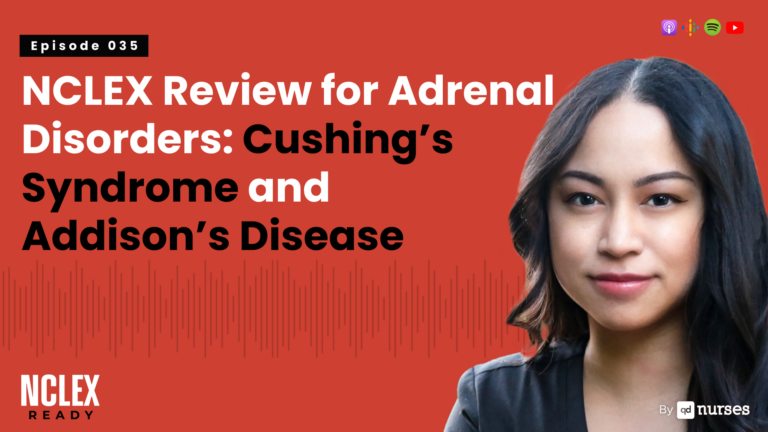![[Image: 50 Quick Fundamentals of Nursing Facts to Pass the NCLEX on Your First Try]](https://www.qdnurses.com/wp-content/uploads/2024/08/QDN048_wide-768x432.png)
50 Quick Fundamentals of Nursing Facts to Pass the NCLEX on Your First Try
Sources: WEB MD, Saunders NCLEX Review, KAPLAN NCLEX Medication Review – Are you about to take the Next Generation NCLEX? Then you absolutely don’t want
![[Image: 100 Easy NCLEX Facts to Pass the NextGen NCLEX on the FIRST Try!]](https://www.qdnurses.com/wp-content/uploads/2024/04/QDN038_wide-768x432.png)
100 Easy NCLEX Facts to Pass the NextGen NCLEX on the FIRST Try!
Stressing out about the Next Generation NCLEX? Then you’ve come to the right place! This week, I share with you a hundred (and yes, I
![[Image: 9 GTPAL Practice Questions and Answers for Future Nurses]](https://www.qdnurses.com/wp-content/uploads/2024/04/QDN036_wide-768x432.png)
9 GTPAL Practice Questions and Answers for Future Nurses
If you’re still unsure about your maternity nursing knowledge or how to use the infamous GTPAL, then you don’t want to miss this episode! In

NCLEX Review for Adrenal Disorders: Cushing’s Syndrome and Addison’s Disease
The adrenal glands control a lot of what goes on in our bodies, from responding to stress, to regulating our blood pressure and controlling our
![[Image: 10 Tricky Practice NCLEX Questions and Answers]](https://www.qdnurses.com/wp-content/uploads/2024/04/QDN034_wide-1-768x432.png)
10 Tricky Practice NCLEX Questions and Answers | Weekly Practice #2 for Nursing Students & Graduates
If you’re planning to pass the Next Generation NCLEX, then you might want to give this week’s episode of NCLEX Ready a listen! The NCLEX
![[Image: 10 Crucial Tips to Never Fail the Next Generation NCLEX Again]](https://www.qdnurses.com/wp-content/uploads/2024/03/QDN033_wide-768x432.png)
10 Crucial Tips to Never Fail the Next Generation NCLEX Again
If you failed the Next Generation NCLEX, you’ve come to the right place. You may have even failed it several times and are feeling frustrated
![[Image: 5 Nursing Mnemonics to Help You Pass the NCLEX (Part 2)]](https://www.qdnurses.com/wp-content/uploads/2024/03/QDN030_wide-768x432.png)
5 Nursing Mnemonics to Help You Pass the NCLEX (Part 2)
Studying for the Next Generation NCLEX isn’t the easiest thing to do (believe me, I’d know), but, if you want to pass on your first
![[Image: 3 Tricky Next Generation NCLEX (NGN) Questions You Need to be Able to Answer]](https://www.qdnurses.com/wp-content/uploads/2024/03/QDN026_wide-768x432.png)
3 Tricky Next Generation NCLEX (NGN) Questions You Need to be Able to Answer
Are you feeling nervous about the latest Next Generation NCLEX? I want you to know that you’re not alone! Thousands of nursing students and graduates
![[10 Tricky Practice NCLEX Questions and Answers | Weekly Practice #1 for Nursing Students & Graduates]](https://www.qdnurses.com/wp-content/uploads/2024/02/QDN024_wide-768x432.png)
10 Tricky Practice NCLEX Questions and Answers | Weekly Practice #1 for Nursing Students & Graduates
Are you stressing out about passing the NCLEX? Then you’ve come to the right place, because this episode is for you! I know what it’s
![[Image: A Comprehensive Guide to Pituitary Disorders for NCLEX Success]](https://www.qdnurses.com/wp-content/uploads/2024/02/QDN023_wide-768x432.png)
Mastering the Master Gland: A Comprehensive Guide to Pituitary Disorders for NCLEX Success
In this week’s episode of NCLEX Ready, I’m doing something a bit different. I’ll be answering a special request from one of our followers, Catherine
